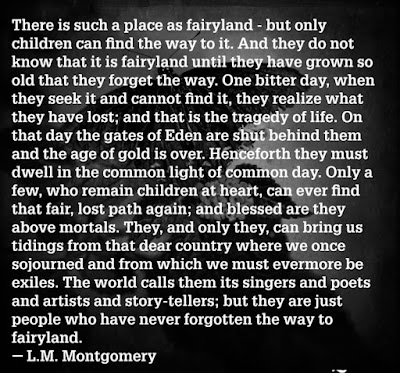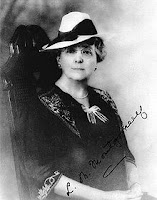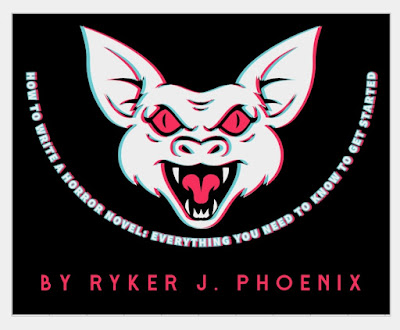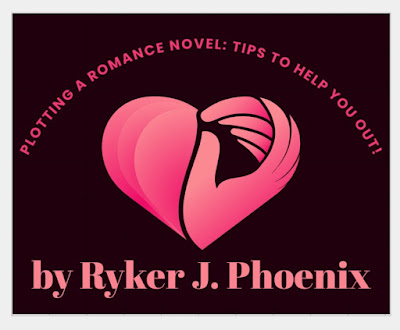The Technique of the Mystery Story (1913)
by Carolyn Wells
FOREWORD BY OLIVIA SALTER
The Technique of the Mystery Story is an exceptional guide for aspiring writers, eager readers, and enthusiasts of the mysterious and thrilling world of detective fiction. Authored by the prodigious Carolyn Wells, an esteemed writer and connoisseur of the genre, this book unravels the intricate art of crafting captivating mysteries, revealing the secret behind successfully weaving suspense clues and unexpected twists.
As an ardent admirer of mystery novels, I have often found myself immersed in the intricate puzzle that unfolds within these pages. Mystery stories possess the power to transport us to a realm where logic reigns supreme and every clue provides a tantalizing glimpse into the unknown. Through this foreword, I hope to convey my personal appreciation for Carolyn Wells' contribution to this beloved literary genre and shed light on the indispensable role her work plays in guiding both writers and readers alike.
First and foremost, The Technique of the Mystery Story serves as a beacon of guidance for budding authors who aspire to master the art of suspense writing. Carolyn Wells, with her wealth of experience and inherent wisdom, offers invaluable advice on creating compelling characters, constructing intriguing plots, and developing the suspenseful atmosphere necessary for a captivating mystery. Her concise yet comprehensive approach equips writers with the necessary tools to craft an enticing web of clues, red herrings, and resolutions that leave readers spellbound until the very last page.
Moreover, this extraordinary work serves as an essential companion for avid readers and enthusiasts of the mystery genre. By unraveling the secrets behind the construction of a mystery plot, Carolyn Wells invites readers to embark on a journey of discovery, prompting us to analyze and decode the carefully laid clues alongside the story's protagonists. Her illuminating insights encourage us to engage in a thrilling exercise of deductive reasoning, heightening our enjoyment and deepening our appreciation for the genre as a whole.
In addition to its technical aspects, The Technique of the Mystery Story also pays homage to the pioneers of detective fiction and highlights the evolution of the genre over time. By examining the works of esteemed authors like Edgar Allan Poe, Sir Arthur Conan Doyle, and Agatha Christie, Carolyn Wells offers a fascinating exploration of the principles and conventions that have shaped mystery literature throughout history. This comprehensive survey of the genre not only educates readers on its rich legacy but also inspires us to delve further into the vast treasure trove of mystery stories waiting to be discovered.
In conclusion The Technique of the Mystery Story stands as a remarkable testament to Carolyn Wells' expertise, passion, and unwavering dedication to the craft. By imparting her profound knowledge and profound love for mystery writing, Wells empowers both writers and readers to unlock the secrets behind this captivating genre. Whether you aspire to unleash your creative potential as a writer or seek the thrilling experience of unraveling a masterfully crafted mystery, this book is an indispensable addition to your literary repertoire.
So, dear reader, I invite you to embark on this enlightening journey guided by the indomitable spirit of Carolyn Wells. Open this book, soak in the invaluable wisdom, and prepare to delve into the labyrinthine world of mystery with newfound enthusiasm and insight. May your path be adorned with intrigue, your mind challenged with enigmas, and your heart captivated by the unrivaled magic of the mystery story.
Happy reading!
Olivia Salter
02/05/2023
AUTHOR OF "THE CLUE," "A CHAIN OF EVIDENCE," "THE MAXWELL MYSTERY," ETC.
TABLE OF CONTENTS:
CHAPTER I—THE ETERNAL CURIOUS
1. The Inquisition into the Curious is Universal
2. Early Riddles
3. The Passion for Solving Mysteries
CHAPTER II—THE LITERATURE OF MYSTERY
1. The Rightful Place of the Mystery Story in Fiction
2. The Mystery Story Considered as Art
3. The Claims of Antagonists and Protagonists
CHAPTER III—THE HISTORY OF MYSTERY
1. Ancient Mystery Tales
CHAPTER IV—GHOST STORIES
1. A Working Classification
2. The Ghost Story
3. Famous Ghost Stories
4. The Humorous Ghost Story
CHAPTER V—RIDDLE STORIES
1. Some Notable Riddle Stories
2. The Nature of the Riddle Story and Its Types
CHAPTER VI—DETECTIVE STORIES
1. What Is a Detective Story
2. Rise of the Detective Story
3. The Detective—Fictive and Real
4. Fiction versus Fact
5. The Interest of the Detective Story
6. A Summing Up
CHAPTER VII—THE DETECTIVE
1. The Real Detective and His Work
2. Fictive Detective Material
3. The Transcendent Detective
4. Pioneer Detectives of Fiction
5. Recent Detectives of Fiction
6. The Scientific Detective of Fiction
7. The New Psychology in Detective Stories
8. Other Types
CHAPTER VIII—DEDUCTION
1. Ratiocination in Early Detective Stories
2. Deduction Used in Every-day Life
3. The Analytical Element in the Detective Story
4. Poe's Detective—The Prototype
5. The Detective in the Novel
CHAPTER IX—APPLIED PRINCIPLES
1. The Detectives of Poe, Doyle, and Gaboriau
2. Individuality of these Detectives
3. The Real Sherlock Holmes
CHAPTER X—THE RATIONALE OF RATIOCINATION
1. Sherlock Holmes' Method
2. Lecoq's Method
3. Other Methods
4. Holmes' Method Evaluated
5. The Inductive and the Deductive Methods
6. Two Striking Examples
CHAPTER XI—CLOSE OBSERVATION
1. The Search for Clues
2. The Bizarre in Crime
3. The Value of the Trivial
4. The Tricks of Imitation
CHAPTER XII—OTHER DETECTIVES OF FICTION
1. Some Original Traits
2. Two Unique Detectives
CHAPTER XIII—PORTRAITS
1. Some Early Detective Portraits
2. Some More Modern Portraits
3. Some Less Known Portraits
4. Idiosyncrasies of Fictional Detectives
5. Favorite Phrases of Detectives
CHAPTER XIV—DEVIOUS DEVICES
1. Snow and Rain
2. Some Particularly Hackneyed Devices
3. Devices Which Are Not Plausible
CHAPTER XV—FOOTPRINTS AND FINGERPRINTS
1. The Omnipresence of Footprints
2. Other Miraculous Discoveries
3. Remarkable Deductions from Footprints
4. Fingerprints and Teeth-marks
CHAPTER XVI—MORE DEVICES
1. Tabulated Clues
2. Worn-out Devices
3. The Use of Disguise
4. Other "Properties"
CHAPTER XVII—FAKE DEVICES
1. The "Trace" Fallacy
2. The Destruction of Evidence
3. False Hypotheses
4. Errors of Fact and of Inference
5. The Use of Illustrative Plans
6. The Locked and Barred Room
CHAPTER XV—MURDER IN GENERAL
1. Murder Considered in the Abstract
2. Murder as a Fine Art
3. The Murder Theme
4. The Robbery Theme
5. The Mysterious Disappearance
CHAPTER XIX—PERSONS IN THE STORY
1. The Victim
2. The Criminal
3. Faulty Portrayal of the Criminal
4. The Secondary Detective
5. The Suspects
6. The Heroine and the Element of Romance
7. The Police 8. The Supernumeraries
CHAPTER XX—THE HANDLING OF THE CRIME
CHAPTER XXI—THE MOTIVE
CHAPTER XXII—EVIDENCE
1. The Coroner
2. The Inquest
3. The Witnesses
4. Presentation of the Evidence
5. Circumstantial Evidence
6. Deductions from Evidence
7. Deductions from Clues
8. Evidence by Applied Psychology
9. Direct Observation
10. Exactness of Detail
11. Theories of Evidence
CHAPTER XXIII—STRUCTURE
1. Length
2. The Short-Story and the Novel
3. Singleness of Plot in the Detective Story
4. The Question of Length
5. The Narrator in the Detective Story
6. The Setting
CHAPTER XXIV—PLOTS
1. The Plot is the Story
2. Constructing the Plot
3. Maintaining Suspense
4. Planning the Story
5. The Question of Humor
6. Some Unique Devices
CHAPTER XXV—FURTHER ADVICES
1. The Use of Coincidences
2. The Use of Melodrama
3. Dullness
4. Unique Plots and their Solubility
5. Women as Writers of Detective Stories
CHAPTER XXVI—FINAL ADVICES
1. General Qualities of the Detective Story
2. Correctness
3. Names
4. Titles
The PDF might take a minute to load. Or, click to download PDF.
If your Web browser is not configured to display PDF files.
No worries, just click here to download the PDF file.






.jpg)

